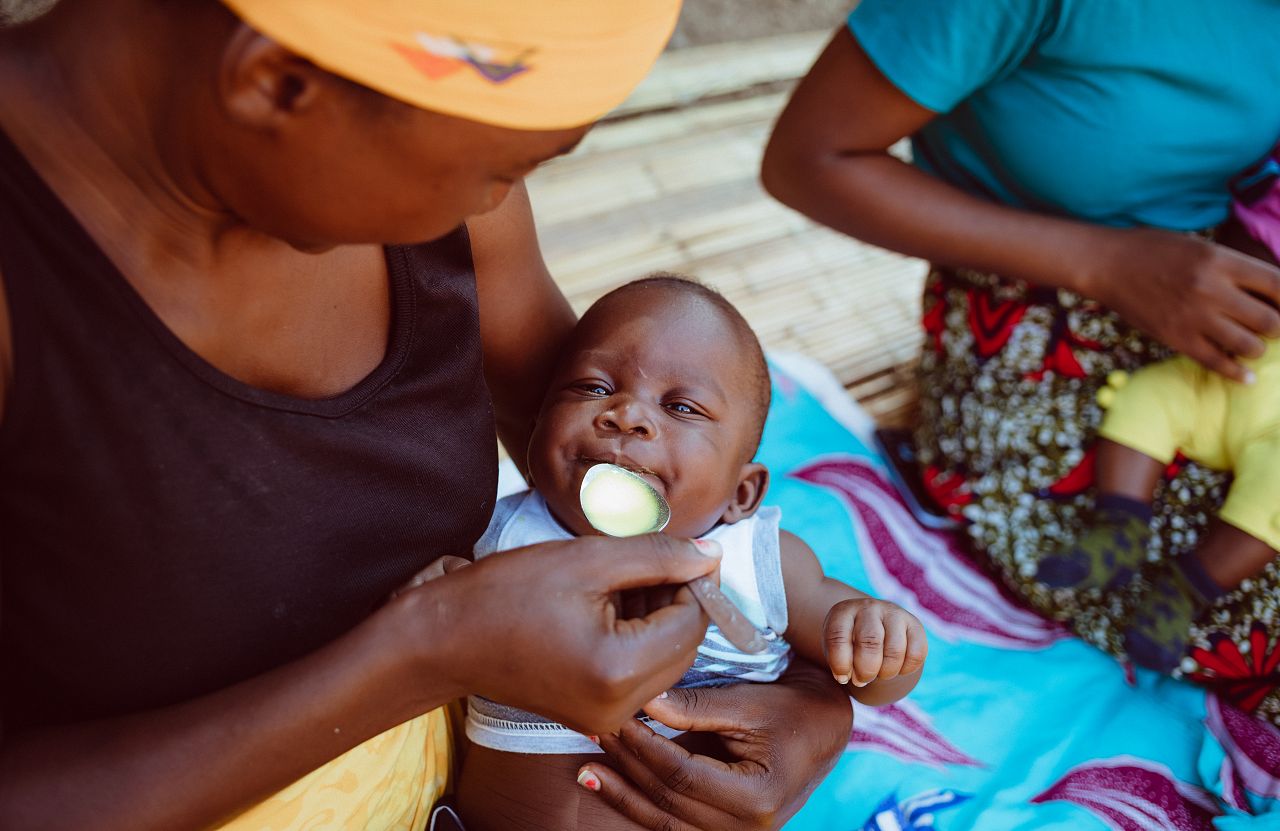Malaria Consortium provides technical, logistical and financial support to SMC campaigns and works with governments and implementation partners to deliver the following SMC intervention components:
Planning and enumeration
Planning typically starts around five months before the annual SMC round. This involves determining where and when the campaign will be implemented and estimating the target population, as well as recruiting the required number of community distributors and supervisors.
Procurement and supply management
Malaria Consortium’s operations team manages the shipment of SPAQ from the manufacturers in China and India to the central warehouses in the countries where we implement SMC. From there, the medicines and other SMC commodities, such as T-shirts, bags and pens for SMC implementers, are distributed to health districts and health facilities ahead of the SMC round.
Community engagement
To ensure maximum uptake, mass campaigns such as SMC need to be well accepted by communities. Ensuring communities understand the rationale for SMC and support its implementation is therefore essential. Typically, this includes sensitisation meetings with local leaders, airing of radio spots, and town announcers disseminating relevant information during the campaign.
Training
SMC implementers are typically trained through a cascade model starting at the national level about one month before the SMC round, with each cadre of trainers subsequently training the next lower level of trainers and learners. All community distributors and supervisors attend a one- or two-day classroom training before the start of the campaign. Malaria Consortium has played a key role in developing the training materials used in the countries where we implement SMC.
SPAQ administration
Community distribution of SPAQ is at the heart of the SMC intervention. Each monthly course involves one dose of SP and three daily doses of AQ, with SP and the first dose of AQ given under the supervision of the community distributor, and the remaining two doses of AQ given by the caregiver
over the following two days. Malaria Consortium has led the development of guidance for SMC implementers, as well as tools to ensure high-quality implementation, for example job aids for community distributors.
Case management and pharmacovigilance
Children who are referred to health facilities by community distributors and who test positive for malaria infection should not receive SPAQ, but should be treated with effective antimalarial medicines according to country guidelines for the case management of malaria in children. While severe adverse events following administration of SPAQ are rare, mild side effects such as vomiting are more common. All adverse events should be reported via countries’ pharmacovigilance systems and followed up according to country guidelines.
Supervision
During SMC distribution, community distributors are assisted by field supervisors who receive more in-depth training on supervision and mentoring skills. Supervision is coordinated by salaried, facility-based health workers. Supervision is supported by district, provincial and central health authorities, as well as Malaria Consortium staff.
Monitoring and evaluation
Administrative monitoring data are collected by community distributors on tally sheets. Stock reconciliation data are collected through the national supply management systems. To identify areas that do not meet certain coverage or quality standards, Malaria Consortium routinely conducts end-of-cycle household surveys using lot quality assurance sampling methodology following all but the final SMC cycle. Following the end of the annual SMC round, Malaria Consortium commissions more comprehensive end-of-round household surveys to determine SMC coverage and quality of SMC implementation.
As an organisation, Malaria Consortium is committed to technical excellence. Within our SMC programme, much of our work is about continuous improvement of quality of SMC implementation, as well as contributing to the evidence base through M&E and research.
[1] World Health Organization. WHO policy recommendation: seasonal malaria chemoprevention (SMC) for Plasmodium falciparum malaria control in highly seasonal transmission areas of the Sahel sub-region in Africa. Geneva: WHO; 2012.
[2] WHO. World malaria report. Geneva: WHO, 2019.
[3] Meremikwu MM, et al. Intermittent preventive treatment for malaria in children living in areas with seasonal transmission. Cochrane Database of Systematic Reviews, 2012; (2).
[4] World Health Organization. World malaria report 2020: 20 years of global progress & challenges. Geneva: WHO; 2020.
